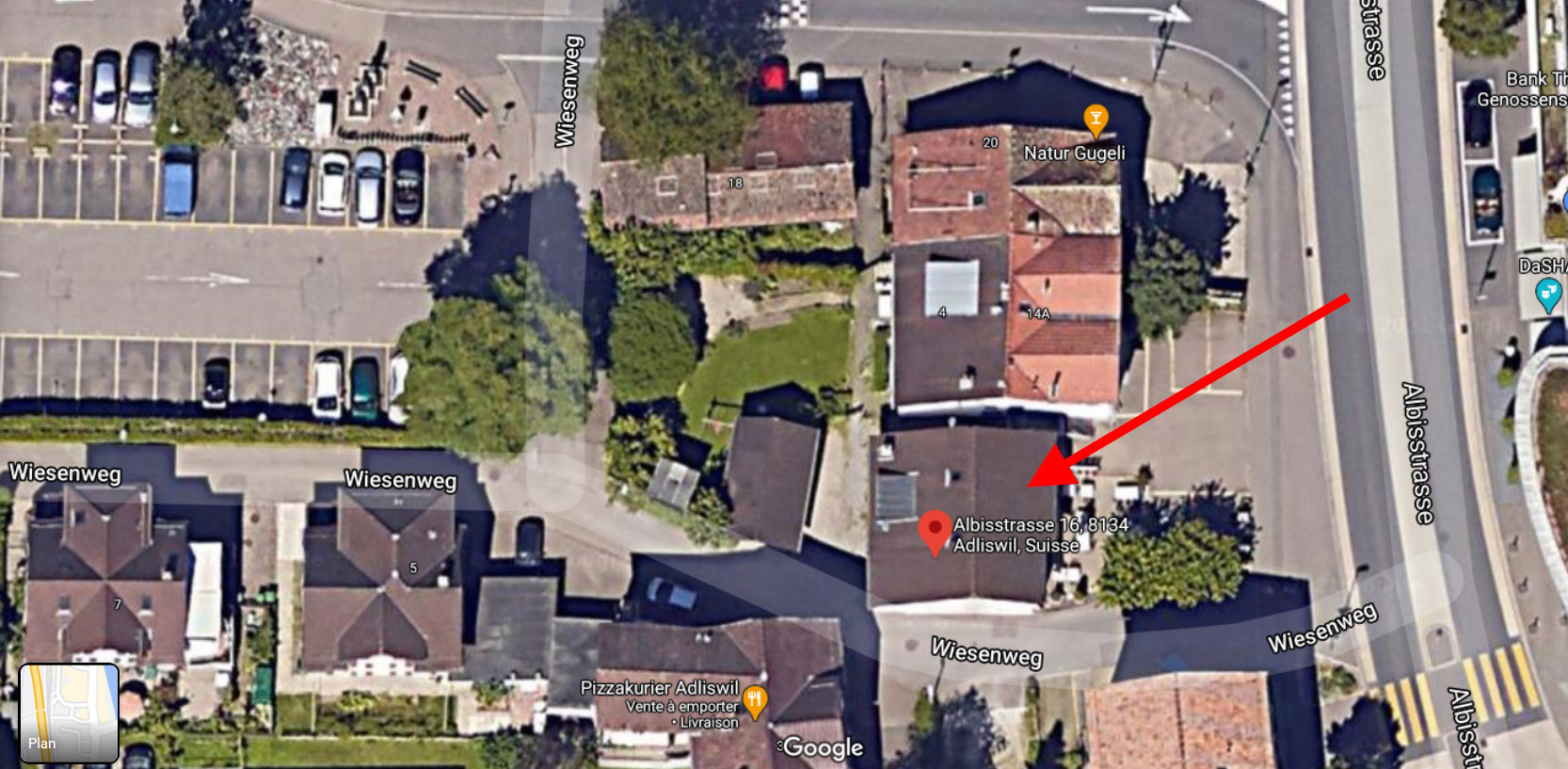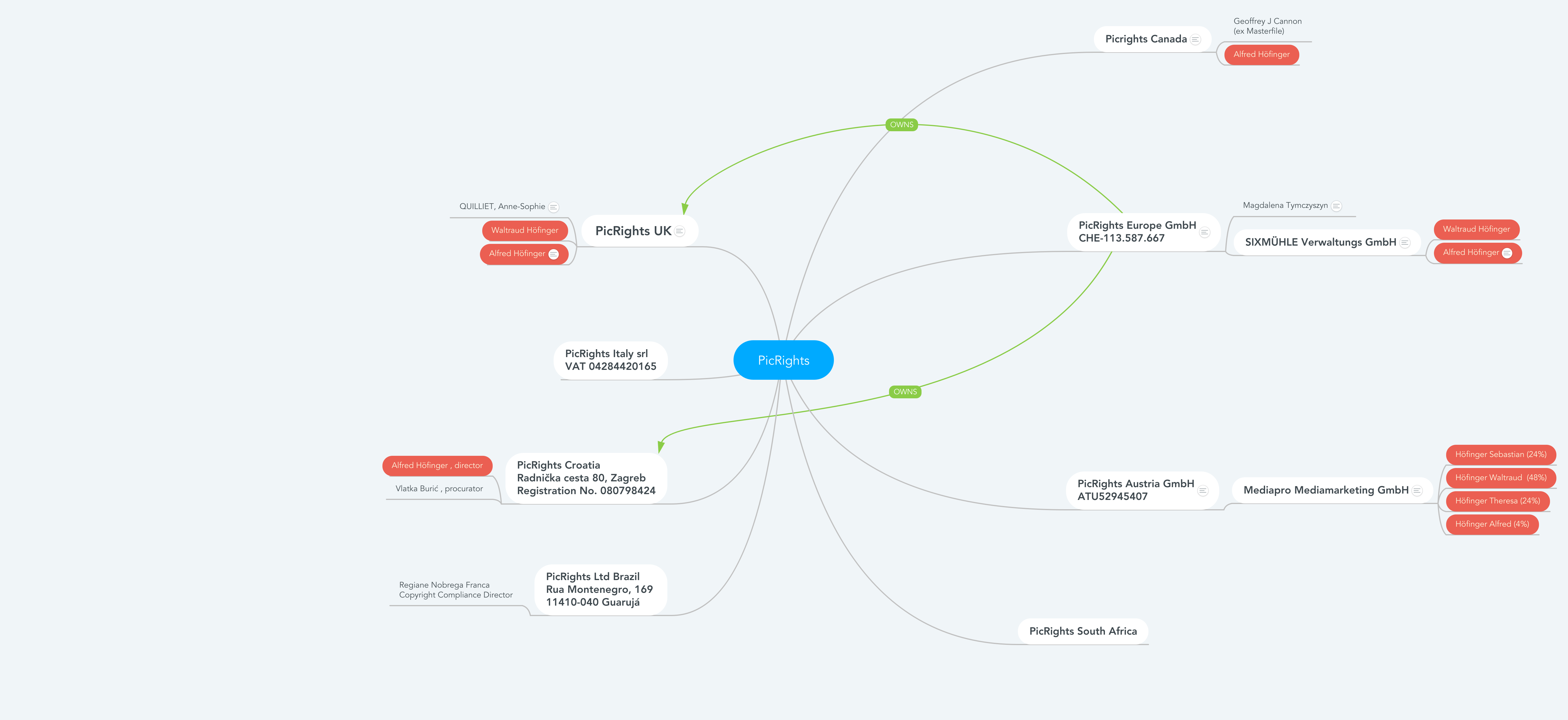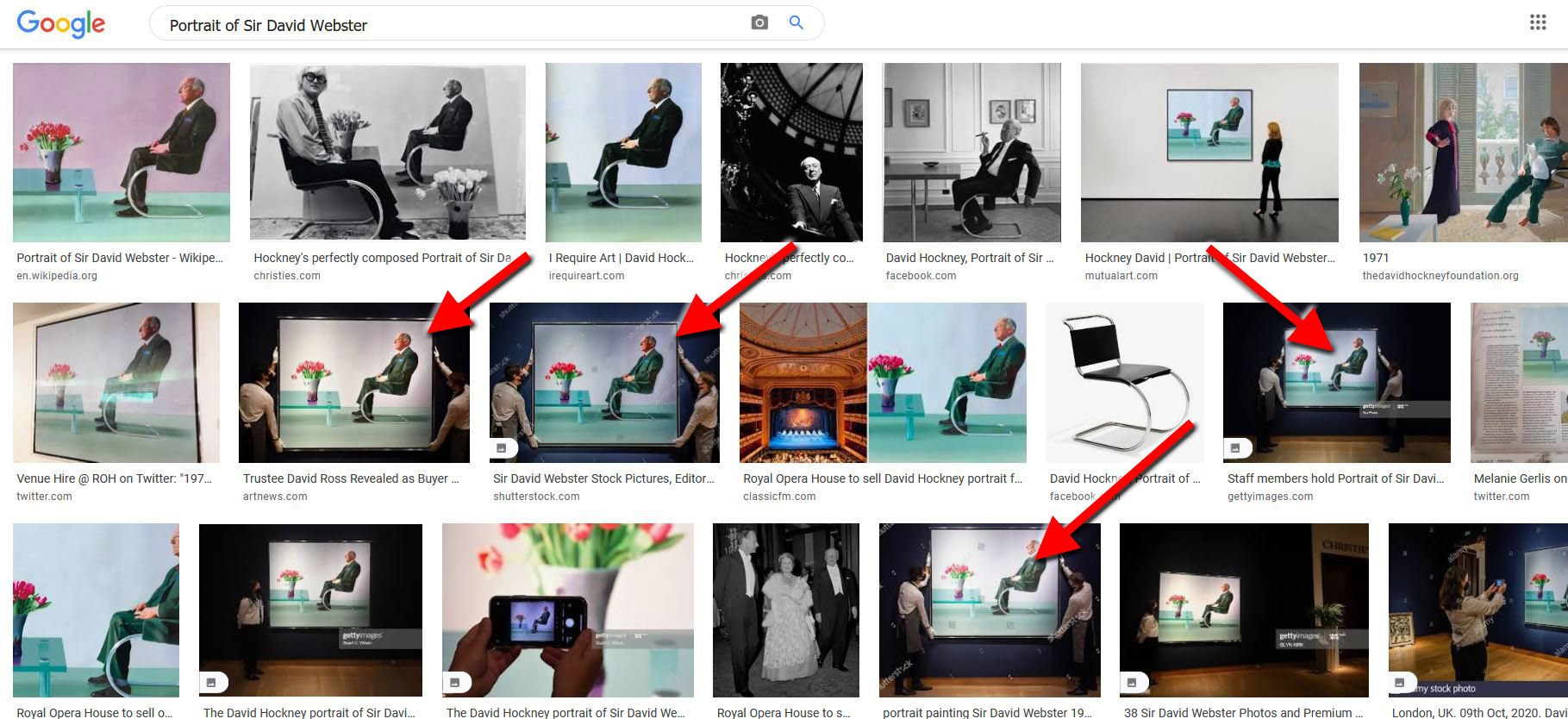PicRights is a company that is making a name for itself on the Internet as a copyright troll acting on behalf of AFP (Agence France Presse). The practice of copyright trolling has been deemed an abuse of rights by the European Court of Justice. PicRights’ claims are therefore rarely well-founded, often abusive, so you needn’t worry. However, French court rulings from 2024 show that there are risks. Read this article carefully. I’ve been fooled by PicRights, so I’m sharing my experience with you, free of charge.
If you only have 30 seconds
PicRights is a “copyright troll” acting in particular on behalf of AFP.
Even if the risks are low, PicRights is still taking some cases to court. Anyone who tells you there’s no chance of going to court is lying. In 2024, three cases went to court in France and Picrights won.
However, the sums awarded by the courts were far less than what PicRights was claiming.
The cases were flawed, however, and I invite you to read my analysis in this article to fully understand how not to end up in court.
If you have received one of their e-mails, be sure to follow these 4 tips:
- check whether you had the rights to use the offending image, or whether the image is the one you really used
- remove the image if you do not have the rights to use it
- check whether the image qualifies as original and is therefore eligible for copyright protection.
- Never reply to their e-mails and never confirm that the image was indeed present on your website. In a recent ruling by the Paris Court, this is what enabled Picrights to win.
Above all, don’t panic, and don’t make the mistake of paying immediately. Don’t reply to the e-mail you receive. Assess the legitimacy of the claim first, and bear in mind that Picrights knows that claims are abusive and, in many cases, would not stand a chance in court. Their interest is in getting you to pay quickly, not in going to court. Even if you’re in the wrong, you can still get at least 50% off the amount you’re asking for. However, be aware that in rare cases, PicRights can take you to court. I’ve found 3 judgments from 2024 that I’ll explain in this article.
PicRights and AFP: a well-oiled cash machine
It all began with the discovery of a PicRights email in my spam box on a Friday evening. It turned my weekend upside down. It wasn’t until several weeks later that I realized I’d fallen for it, and that I’d become a victim of copyright trolling. PicRights has put me on its hit list.
To make sure you don’t make the same mistakes I did, I did a lot of research and consulted an expert in the field: Me. Jérôme Tassi. I invite you to watch the video podcast we made together. He’ll answer all your questions about PicRights and show you how to react.
You can be sued: analysis of 3 judgments from 2024
In 2024, 3 judgments were handed down in France concerning cases triggered by Picrights. The lessons learned from these 3 judgments are as follows:
- Small non-profit structures with low-audience sites using AFP photos without authorization have little to worry about. To date, no court case has been brought against a structure of this type.
- On the other hand, larger, more lucrative companies should consider the possibility of negotiating out of court if the amounts involved are reasonable. At the very least, any company contacted by PicRights should refrain from acknowledging the use of the image.
Here are the 3 court rulings I found on 15/01/25.
In the Paris Court ruling of June 27, 2024, the DK Ambassador company, accused of counterfeiting, was not condemned for copyright infringement, due to the photo’s lack of originality, but had to pay €585.75 for behavior deemed parasitic and €3,000 for legal fees. The court’s arguments were based in particular on DK Ambassador’s acknowledgement of the use of the image in an exchange with Picrights.
In the Lille Court ruling of March 29, 2024, a pre-trial order forced Extreme Tennis to pay €2,000 in damages on procedural grounds, but the case on the merits remains to be judged.
In a judgment handed down by the Marseilles Court on December 19, 2024, ERM Automatismes Industriels was ordered to pay €800 for economic loss, €800 for legal fees and procedural costs, as the photo used was deemed original, underlining the importance of the creative effort.
These decisions therefore confirm that the lawsuits mainly concern companies with a significant commercial profile, and not small non-profit sites. What’s more, the sums claimed by PicRights have never been awarded by the courts. When there is a conviction, the sums awarded are much smaller.
What is copyright trolling?
Copyright trolling is a commercial activity aimed at obtaining, often by threat, financial compensation for the use of copyrighted material. Copyright trolling is usually carried out on behalf of third parties.
Companies, often opaque, use robots to scan websites and discover unauthorized uses of images for which they believe copyright legislation applies. Psychological pressure is then exerted to obtain the payment of financial compensation that is out of all proportion to the price of a normal user license. In this article we discuss the case of PicRights, a well-known copyright troll, but there are others.
PicRights: how the copyright trolling nightmare began
It all began one Friday evening when I discovered an email in my spam box. The email was entitled “Image Licence Validation for Agence France-Presse” and its content sounded very much like a scam.
In the e-mail, an obscure Swiss company, PicRights, supposedly acting on behalf of AFP (Agence France Presse), threatened me with legal action for using a photo they claimed was subject to copyright.
I reproduce below an extract from the e-mail I received. Please note that this is a quotation, in accordance with article 10.1 of the Berne Convention.
Who is PicRights?
The email seemed a little too well-written to be a simple scam like those we’re used to finding in our spam. So, I went straight to the Internet to do some research, and was horrified by what I discovered.
PicRights was based above a pizzeria
When I received the e-mail from PicRights, my first instinct was to do an Internet search. At the time, I got almost 1,200 results with the keyword “AFP Picrights”. The first few pages were full of appalling stories of people calling for help after being threatened by PicRights. The forums were also full of testimonials from frightened people. Reading them convinced me that what I was dealing with was no mere “scam”. It was copyrights trolling by a company that existed.

A quick trip to Google Maps told me more about this famous PicRights company. It was domiciled at 16 Albisstrasse in Adliswil, a small town of 16,000 souls in the Canton of Zurich. Since then, the company has moved to more traditional offices on the shores of a beautiful lake.
Apparently, all business was conducted from a small village house (see picture above). More surprisingly, the same address also housed an Italian restaurant, Piccolino. How could a company as ubiquitous as PicRights be housed in a restaurant? All becomes much clearer when you look at this image, posted by a user on Google Street View. On the restaurant’s 1st floor is a “business center”. So PicRights is undoubtedly an empty shell, whose legal address is located on the 1st floor of a restaurant acting as a mailbox. That’s reassuring.
A galaxy of small companies in different countries
Picrights is a tangle of small companies registered in different countries. By poring over legal (and public) documents, I was able to reconstruct PicRights’ structure.
Everything seems to revolve around PicRights Europe GmbH and the Höfinger family. Picrights Europe is in fact controlled by SIXMÜHLE Verwaltungs, which belongs to the Höfinger couple. The Austrian structure is owned by Mediapro Mediamarketing, which belongs to the Höfinger couple and their children.

What to do when you receive a threatening email from PicRights?
But let’s get to the heart of the matter: what should you do when you receive an email from PicRights?
My interview with Me. Jérôme Tassi and my readings over the last few weeks have led me to describe a 3-step reaction:
1- Is PicRights’ request justified?
The first question to ask is whether PicRights can claim anything from you, in other words, whether you have improperly reproduced an image. There are three possible options:
- You had the right to reproduce the image, in which case the matter ends here.
- The image for which PicRights claims rights is not the one you used, in which case the matter ends.
- You’ve used an image without having the rights, in which case it’s time to read the next paragraph.
2- Remove the image
If you’ve used an image without having paid for a license, remove the disputed image from your site immediately. Read the next paragraph before you do anything.
3 – Evaluate your options before paying
The demands made by copyright trolls are often abusive. Before you pay, you need to consider whether the work you are reproducing is original.
Courts are very strict in recognizing the original character of a work and thus applying copyright. However, PicRights often claims rights for images that are not, in fact, original under copyright law. If this applies to you, you have little to fear (and PicRights knows it).
Copyright: fussy legislation
PicRights uses copyright to claim compensation. The threat of legal action is therefore based on the assumption that the courts will recognize the original nature of the work reproduced. However, as Me. Jérôme Tassi, a lawyer at the Paris Bar specializing in intellectual property, in this video.
Copyright: was the image you used really original?
In my case, there was nothing original about the image I used, and it’s unlikely that a court would have upheld PicRights’ claim. In fact, a Google search (see below) shows that several images of the same type were taken by different photographers without any claim to originality in terms of framing, lighting or post-processing. It’s likely that all the photographers present were gathered in the same place and were therefore forced to adopt the same angle of view.
I invite you to check this out. If you’re a sportsman, don’t hesitate to ask PicRights to prove the original nature of the photo for which they’re claiming compensation. That should calm them down.
